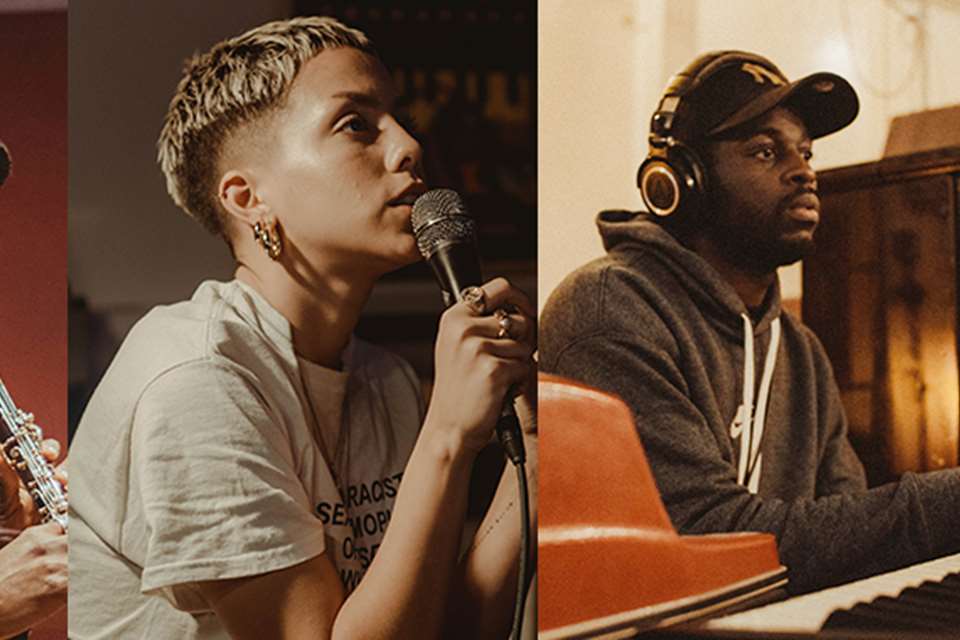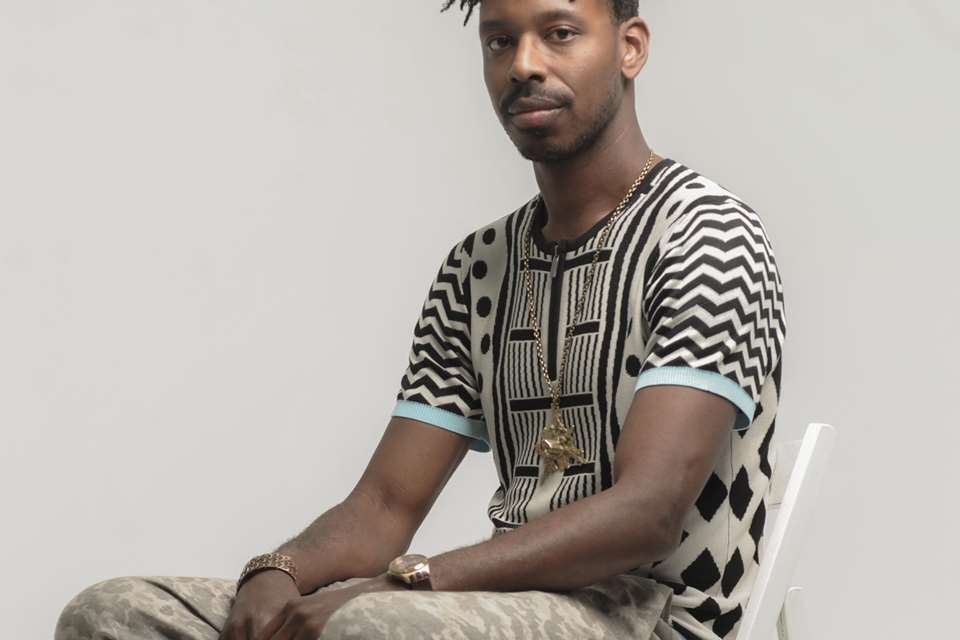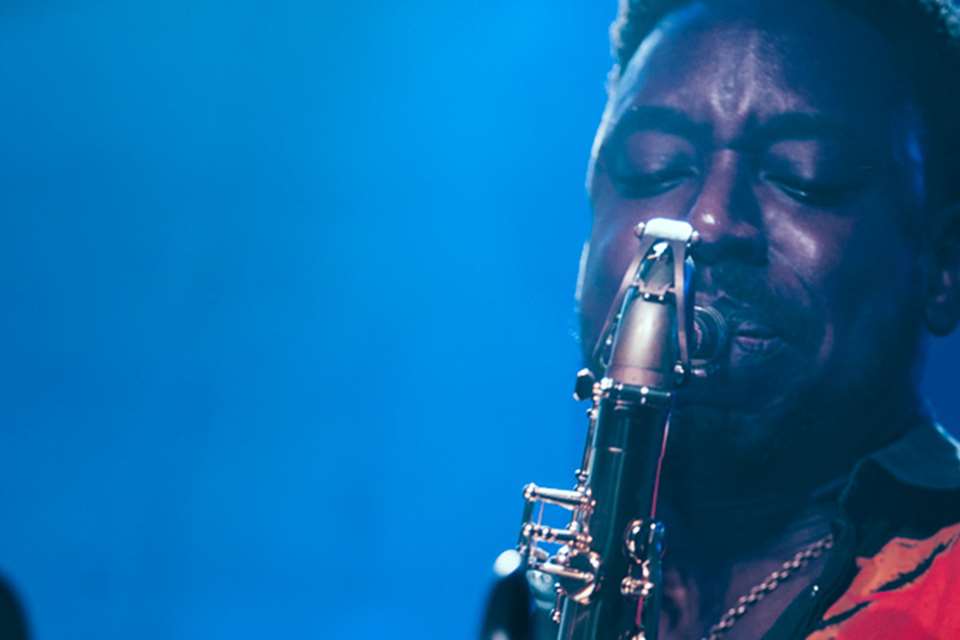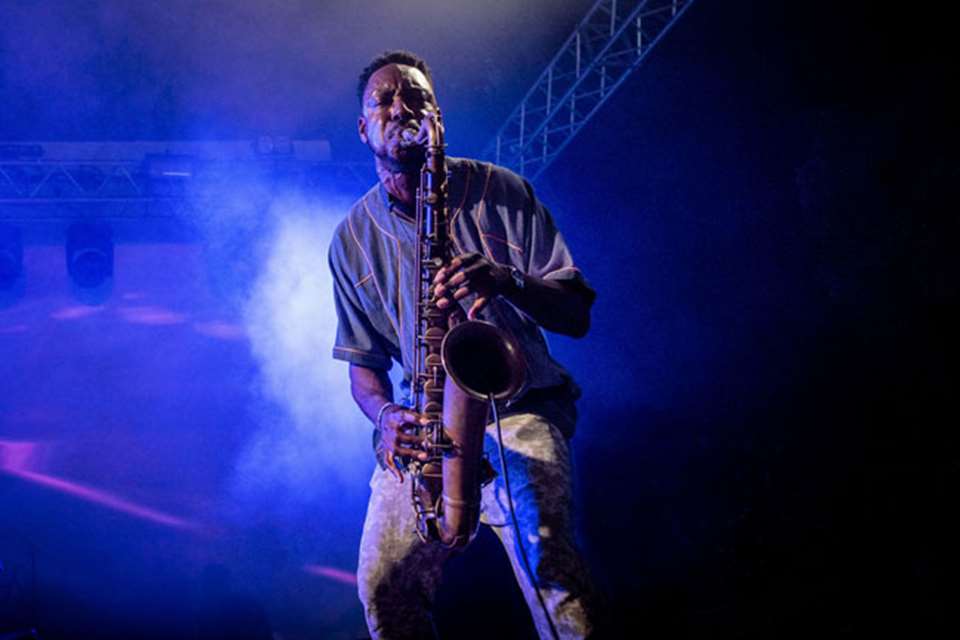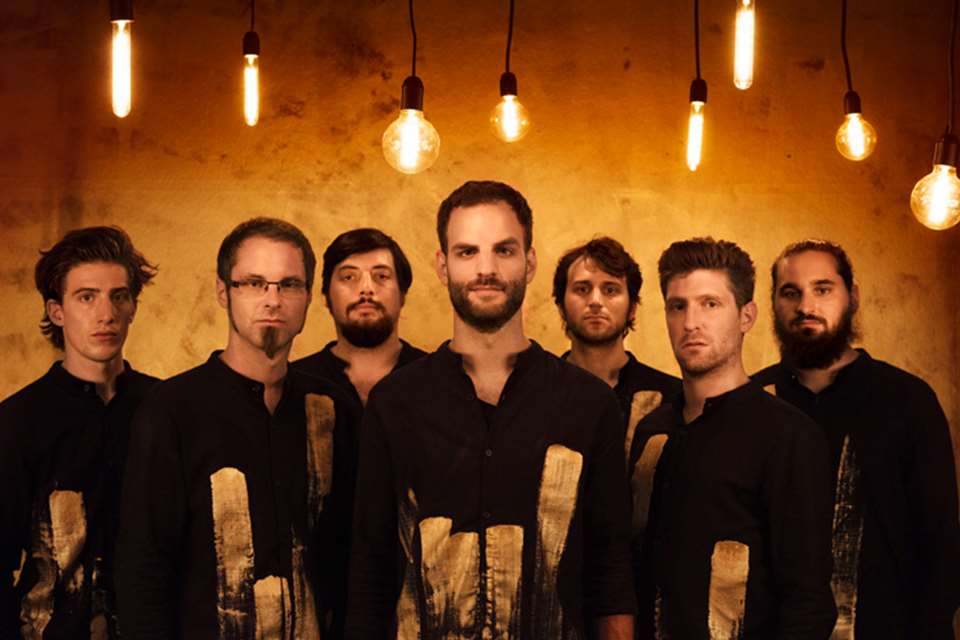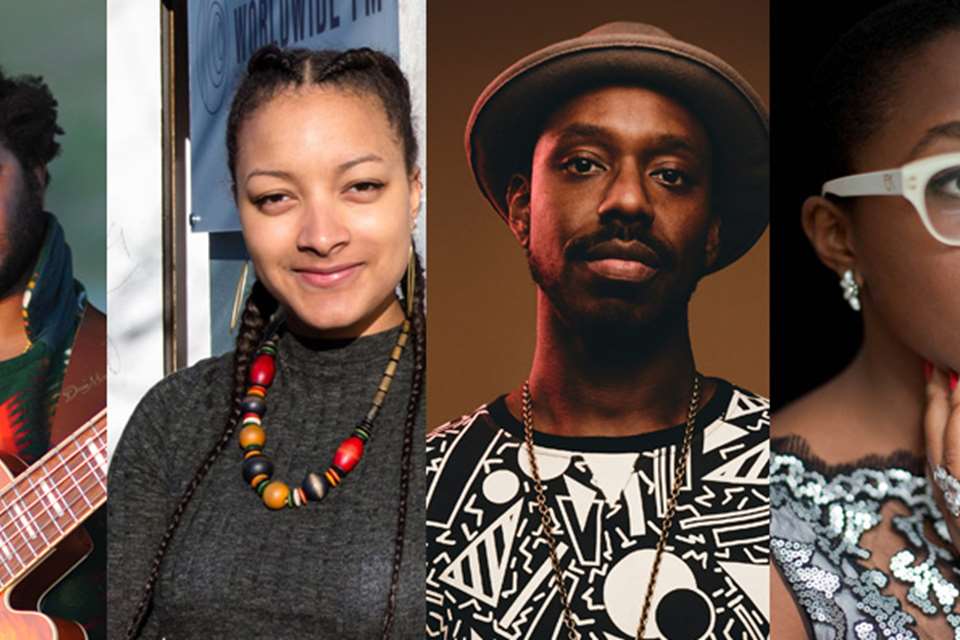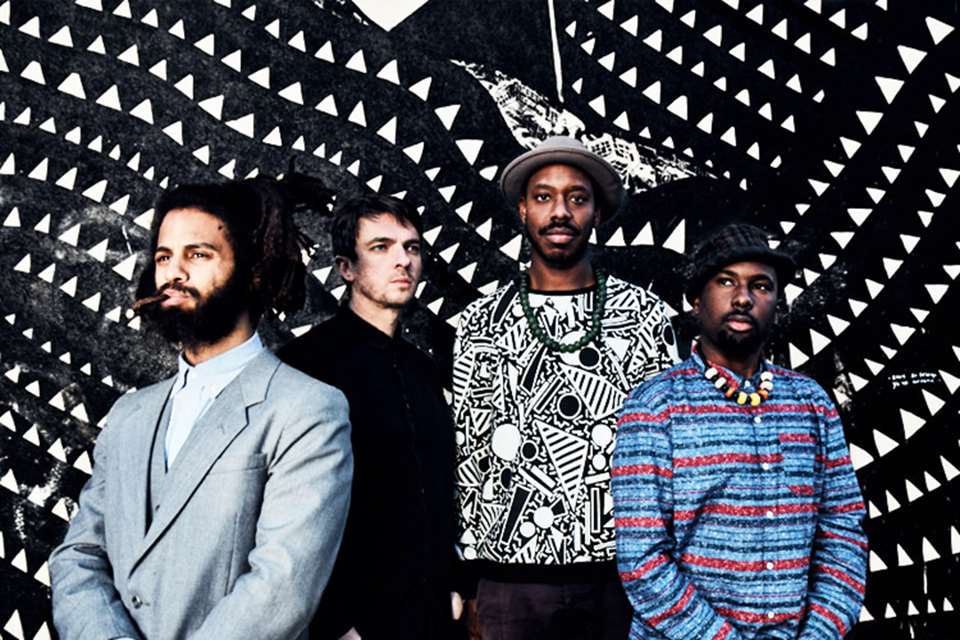Review: Shabaka Hutchings & Stop the War Present A Composition in Memory of the Victims of Hiroshima
Ben Verghese
Tuesday, August 11, 2020
A special performance, live streamed on 6th August 2020 from the Total Refreshment Centre, London
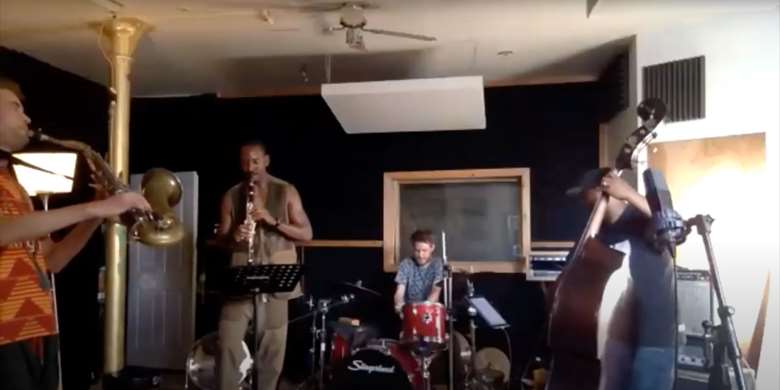
In a brief introduction to this online concert, Shabaka Hutchings raised the question: how do we resolve conflict without violence? The live streamed presentation (now replayable on Stop the War’s online channels), took place on 6th August to acknowledge victims and survivors 75 years since the devastating nuclear massacre at Hiroshima. Broadcasting from a studio at the Total Refreshment Centre (TRC) – “on the hinge of Dalston and Stoke Newington” (as Emma Warren put it in the book Make Some Space) – Hutchings noted how the composition was not written as a direct response to the atomic horrors of Hiroshima or Nagasaki but was penned with the sadness in mind along with hope that such world events can be learnt from so we may move forward to a more loving, less violent future.
Shortly after 8pm, the music began. First a prelude, with Hutchings playing a wooden flute (side-blown and more like a bansuri than shakuhachi) accompanied by rattles and scrapes from drummer Maxwell Hallett (aka Betamax). Then Hutchings switched to clarinet and the first movement proper commenced. Neil Charles (on upright bass) bowed then plucked responses to the clarinet calls. Gus Fairbairn (aka Alabaster DePlume) added light breathy wails on tenor sax before picking up the melody and allowing Hutchings to roam.
At roughly halfway, Betamax’s drums came to the fore, and from out of this breakdown, Hutchings swapped clarinet for soprano sax. After the quartet had worked out over the stuttering groove, Hutchings returned to his clarinet, again underscored by Alabaster’s sax. Two-thirds in, Charles and Betamax eased out to allow room for Hutchings to solo on clarinet. These captivating pulses – circling up and down – at times recalled another clarinet solo of his from a Pan African Space Station session (recorded at The Showroom, London 2015). The depth of this solo, as with his opening flute, expressed some of the sadness mentioned in Hutchings’ spoken introduction, evoking the reason for this coming together and calling for introspection.
Exiting the clarinet solo, Hutchings signalled for Charles and Betamax to reappear, whereby the quartet established and sustained a lush rise and falling groove. Although with a different configuration of musicians and instruments to Sons of Kemet (a quartet of two drummers, tuba and saxophones) or indeed The Ancestors, who are less-fixed in formation, the stirring feeling was familiar to both groups Hutchings’ directs. The groove kept on, provoking me to dance, until, 30 minutes after it began, the composition gently faded out.
Tuning in from Cape Town, my level of pre-show excitement was high yet left unquenched. Despite the quality of composition and musicianship, the mode of transmission left me short. While the music could be heard (albeit with occasionally buffering glitches) and musicians seen, albeit in pixelated form, not being in the room together, feeling the vibrations and warmth made a tangible difference. For all the justification to curb a global pandemic, the lockdown with curfew is keeping one of life’s most potent joys out of physical reach, that Christopher Small tagged as musicking. Online concerts offer an interim fix but have neither the fullness of a live gig nor fidelity of a recording (be it on digital or analogue formats). However, in the shadow of the Hiroshima and Nagasaki atrocities these concerns become trivial.
Observing the mood at TRC through my laptop screen, the room felt a world away from the horrors of 1945, or the stark sombre grey of other artistic representations. Maybe such a gap is understandable, since for all the well-meaning empathy, all the love and kindness, London is still the metropole. Where the British government continues to invest in Trident; arms manufacturers like BAE Systems have headquarters; and profits from a trade in killing machines flow through a financial system seen to “clean” them. Lest we forget the words Vijay Prashad tweeted on 7th August: “Only one country has dropped nuclear bombs on human beings. That country has never apologized for this crime against precious life.” And while that country, the USA, is governed by an administration that still develop and stockpile atomic weapons, it is with continued support from the British government, such as with the terrifying W93 programme. Let us also remember that British politicians endorsed the atomic attacks of Japan and British scientists were involved in making those bombs.
“In the sky will be seen a fire, dragging a tail of sparks...” This prophecy of Nostradamus, featured in an early biography for The Comet is Coming (a trio Hutchings plays in with Betamax), brings back to mind the closing line of pacifist-poet Adrian Mitchell’s “Nostalgia - Now Threepence Off”. Mitchell forewarned: “The sky will soon be full of suns.” At a concert in the early 1960s, Mitchell introduced the poem as being about “the loss of innocence”. Both phrases echo the chilling testimonies of Hibakusha (survivors of the 1945 nuclear onslaughts), many who refer to a striking flash of light. Namio Sakamoto has recalled how “The blast [at Nagasaki] made an incredible noise and the sky was lit up by a blinding flash far brighter than the summer sun. At the same time a hot wind came tearing through. […] I looked up at and saw a huge white cloud that blocked out the sun. Underneath the cloud fires were raging.” Sachiko Yasui (who was only six years old at the time of the Nagasaki bombing), has said: “There was an eerie flash of brightness that looked like an overlapping of suns, and then a violent blast assaulted us.” Official data states more than 200,000 people were killed from the immediate impact of the bombings in Hiroshima and Nagasaki, with countless more injured and uprooted.
Evident since Sons of Kemet’s debut album Burn, so much of Shabaka Hutchings’ music has been about creating positive sparks. As he put it in a recent video interview with neuropsychiatrist, Sotiris Posporelis: “I know that creativity is sparked from inspiration. So, if I can play music that inspires people then hopefully that inspiration won’t just be symmetrical, it’ll be, you know, asymmetrical. They’ll go into their reality and look at a situation that they maybe had blindspots before and some creative spark in their brain can make them see it in a different way.”
Perhaps this composition and online concert for the victim and survivors of Hiroshima will help spark, or rather mobilise, more people into questioning and challenging the military industrial complex wherever they live. Perhaps it might generate more support with the calls for unilateral nuclear disarmament. Perhaps, as with the John Coltrane quintet 1966 recordings from Japan (notably the song “Peace on Earth”), along with Alice Coltrane’s trio recording “Atomic Peace”, this music might help move us towards a world in which when we encounter disagreement or conflict we can move beyond violent responses, be they militarised or intimate. There is sadness but there is also hope.
